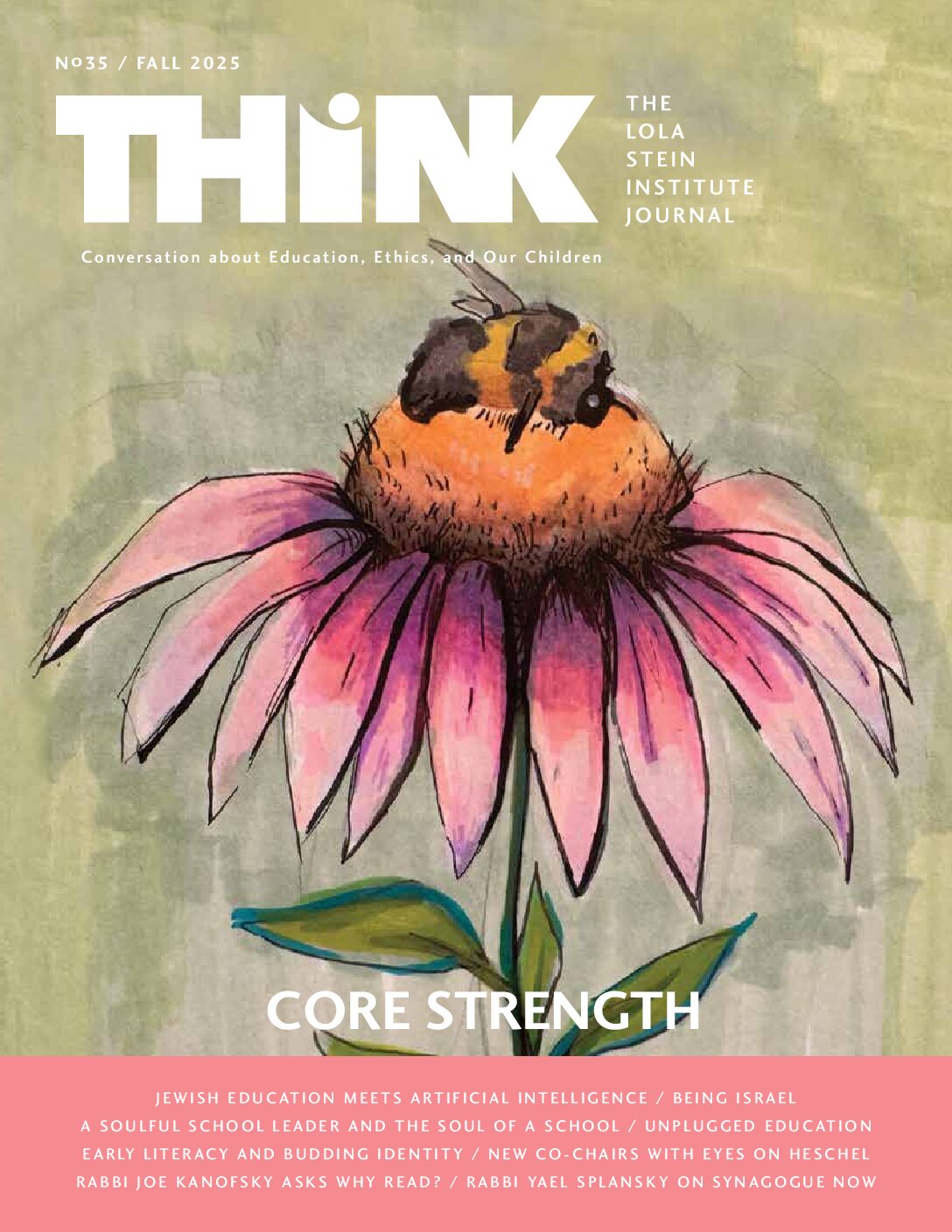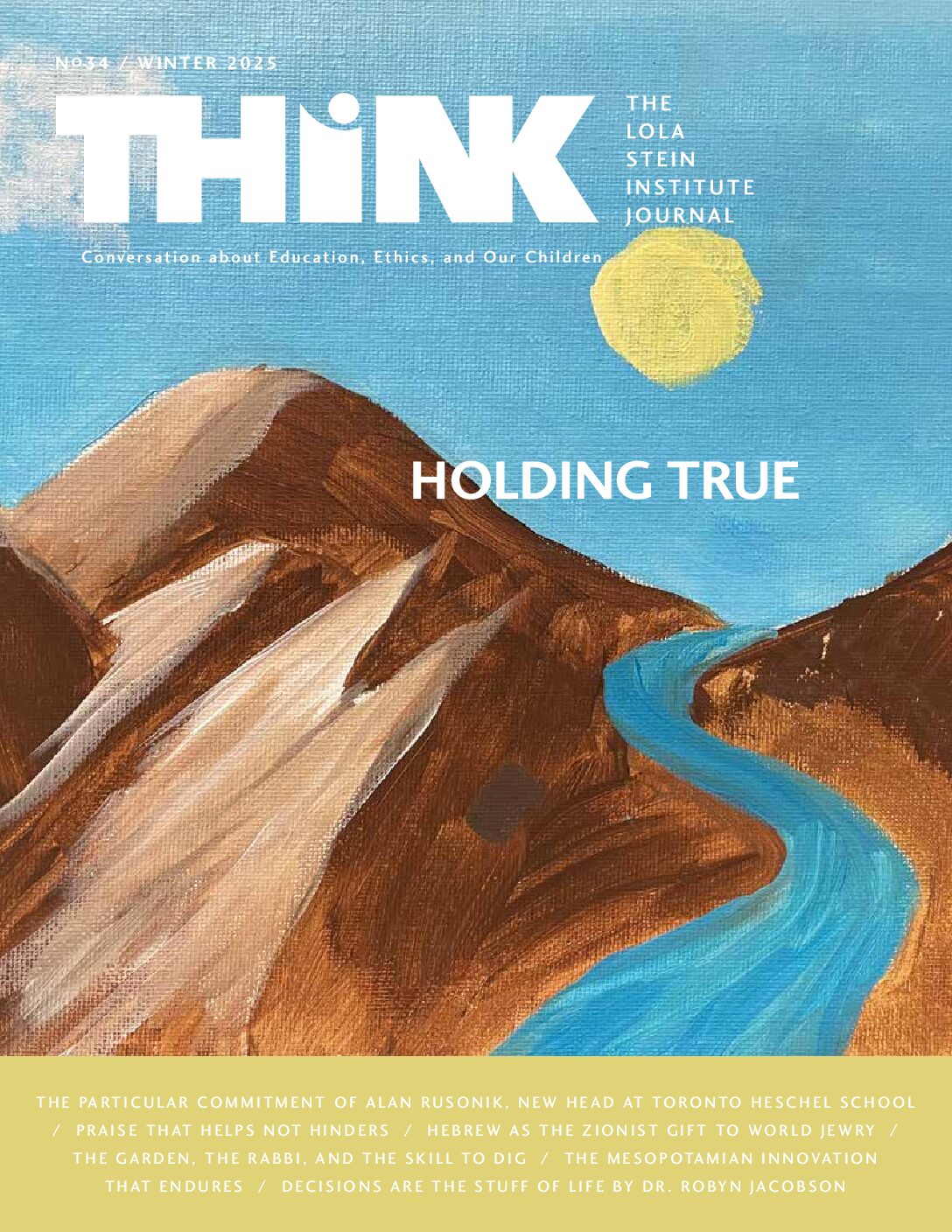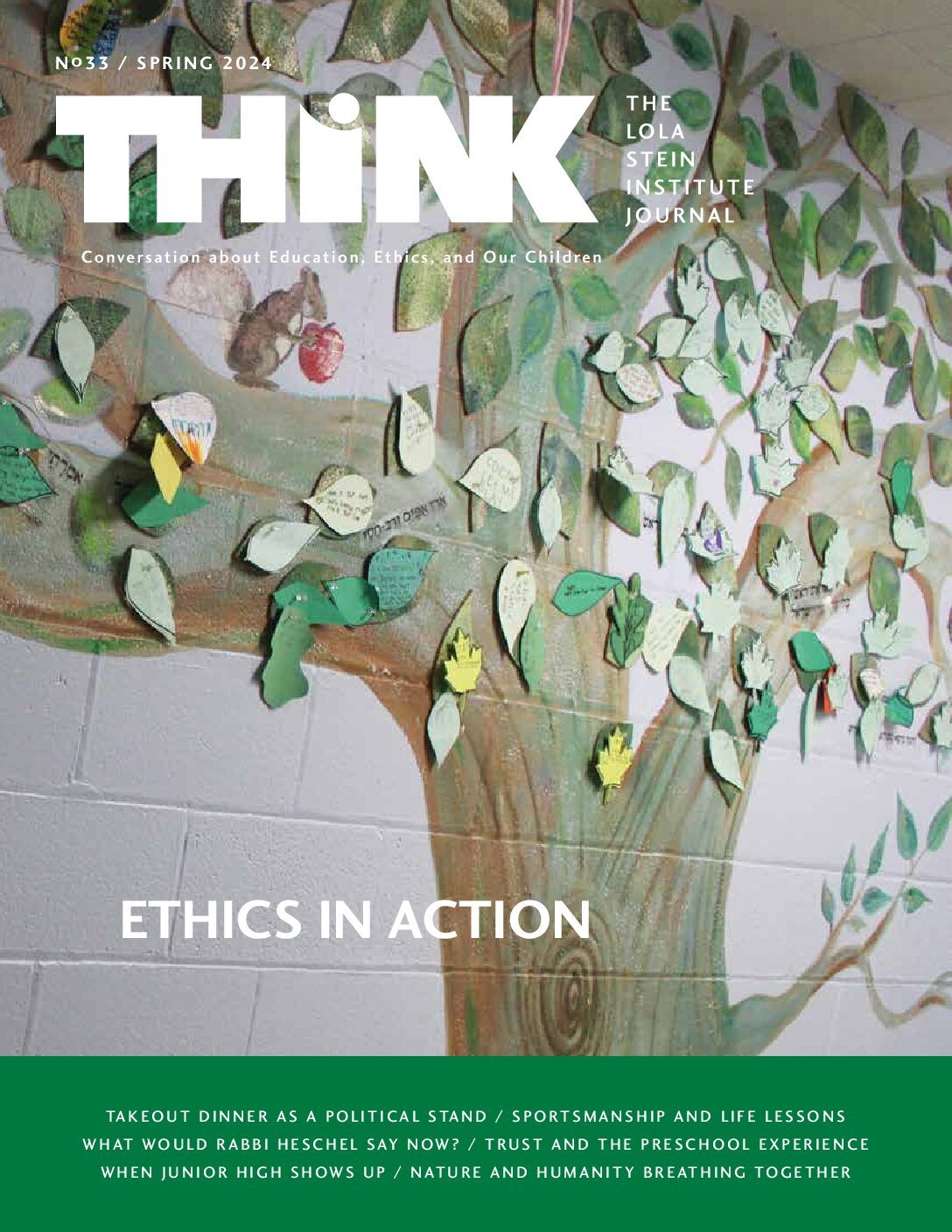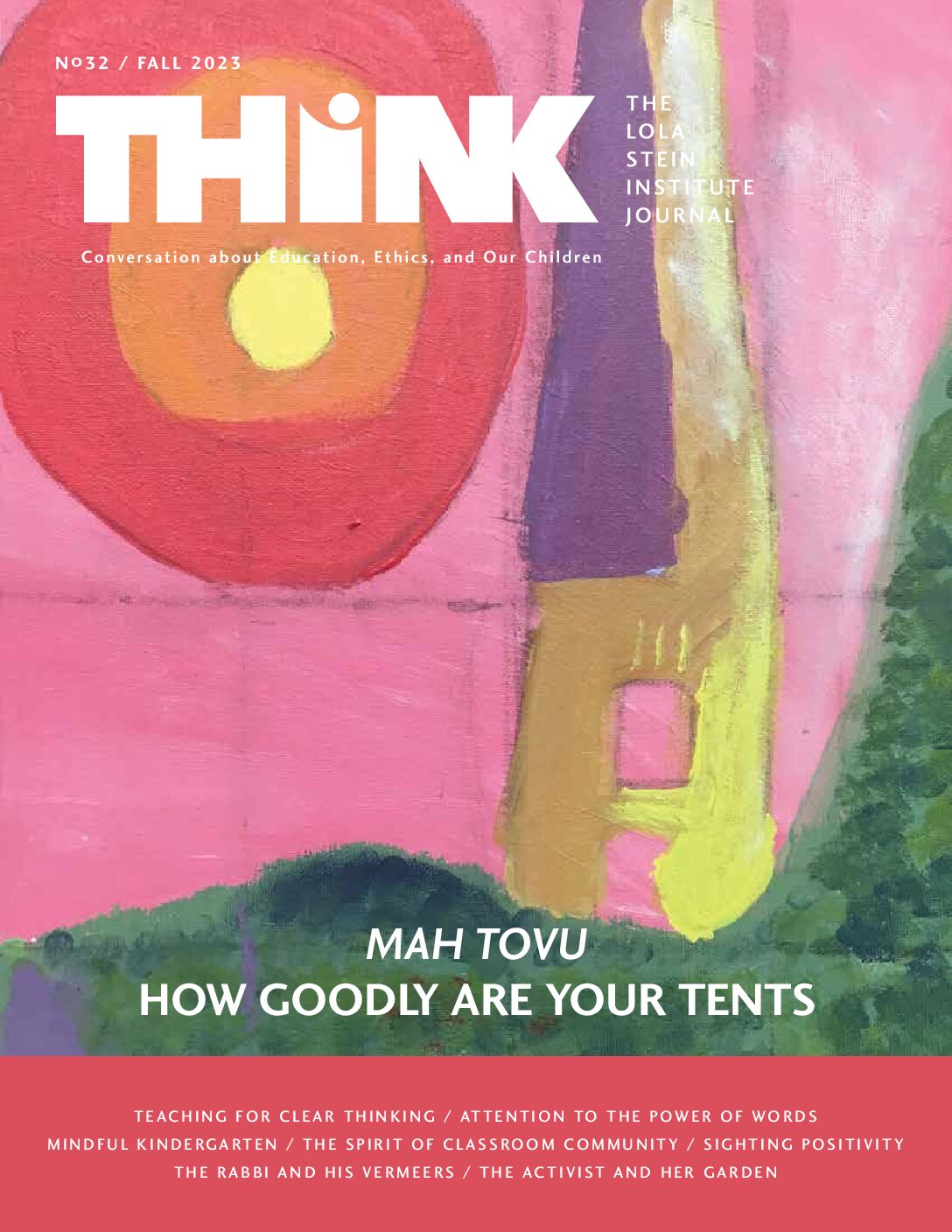
The Lola Stein Institute (LSI) is a centre of inventive educational thinking and addresses the challenge to re-frame schooling for the exigencies of our times.
Fall 2025
Core Strength
Winter 2025
Holding True
Spring 2024
Ethics in Action
Fall 2023
Mah Tovu – How Goodly Are Your Tents
Spring 2023
Rituals. Recipes, and Freedom
Special Collection
Special Collection 2022
The Footsteps of Abraham Joshua Heschel at The Toronto Heschel School.
Special Collection: Learning Through the Visual Arts
This special collection was designed in honour of Morah Judith Leitner. As one of our school’s co-founders she has been a visionary leader to us all these past 25 years.
Fall 2022
This issue of THINK explores the marvel of method – how we do what we do.
Fall 2021
This theme of this issue is “The Ordinary and Extraordinary of Every Day.“ As we try to re-establish some routines and normalcy in our lives this fall, we take time to think about what every day brings.
Spring 2021
This issue of THINK explores the moon — what is lit up and what is behind.
Fall 2020
This issue of Think explores the way we tell stories and teach history to children.
Spring 2020
One in a Minyan
Fall 2019
How We Talk
Spring 2019
This issue of Think explores complexity and how we develop complex thinking in children.
Fall 2018
This issue of Think explores educational approaches to nurturing wonder and developing scientific thinkers.
Spring 2018
Covenant and CommitmentThis issue of THINK explores commitment and the educational training that supports children to become strong deep thinkers.
Fall 2017
Integrative EducationThis issue of Think explores how integration helps children make sense of the world around them.
Spring 2017
Cultivate JusticeThis issue of Think honours and highlights the work that teachers are doing to develop social responsibility in their students through the teaching of the students’ heritage, culture, or religion.
Fall 2016
Imagination lives hereThis issue of Think considers imagination and sees children and teachers contemplating possibilities, envisioning their potential, and discovering themselves.
Spring 2016
The Art of FocusThis issue of Think looks at the art and science of focus. Our writers consider how children can learn focus, and how Jewish tradition, classroom teaching, and family life contribute to children’s sense of self and ability to learn and focus.
Fall 2015
Learning as BelongingIn this issue of Think our writers reflect on learning and belonging, and aspire to an educational environment that cultivates confidence, insightfulness, and initiative.
Fall Winter 2014-2015
Towards Your Best SelfIn this issue of Think our writers consider what is personal and internal – the mind and not the brain, individual identity and not social definition, the management of perspectives and not information.
Spring 2014
This issue of Think contemplates several themes that run through “Weapons of the Spirit”. The writer, producer, and director Paul Sauvage uses the story of “Le Chambon” to cogently demonstrate what good values, good training, and good work look like.
























